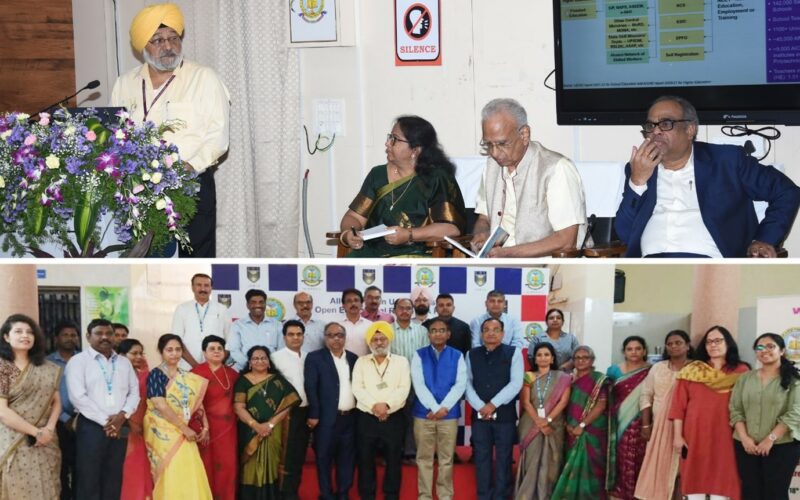
Quality assurance and content development professionals from 17 State Open Universities of India met recently to draw up an action plan for sharing their courseware and other learning material as open educational resources (OER) at an OERfest organised by the Commonwealth of Learning (COL)’s regional centre, Commonwealth Educational Media Centre for Asia (CEMCA), and Dr B. R. Ambedkar Open University (Dr. BRAOU) in Hyderabad, India.
Dr B. Shadrach, Director of CEMCA, said that the event helped to enhance institutional capacity to use OER for course development and micro-credential creation and to recognise benefits, such as cost savings, quality improvements, autonomy, student engagement and personalised learning pathways. He remarked that bringing these open universities under the Consortium of Open Universities of India has been a highly beneficial move in their attempt to implement the National Education Policy 2020 (NEP) and as important allies to the government in achieving national goals for a more all-encompassing, flexible, and technologically-driven higher education ecosystem in India.
As Chief Guest, Dr Nirmal Jeet Singh Kalsi, Chairman of the National Council for Vocational Education and Training emphasised the importance of open universities sharing best practices to enhance the implementation of open and distance e-learning programmes. He underscored the potential of these programmes to equip and empower those who lack resources, as well as the flexibility they offer in developing and delivering courses tailored to meet the learners’ current needs.
Professor K. Seetharama Rao, Vice Chancellor of Dr BRAOU, discussed the challenges in meeting the objectives of the Sustainable Development Goals and India’s NEP, highlighting the crucial role of open universities in improving the gross enrolment ratio.
Over the three-day event, OU officials developed their roadmap for OER practice in their universities while also proposing collaborating arrangements for offering joint programmes, addressing language diversity and interoperability of OER repositories.


